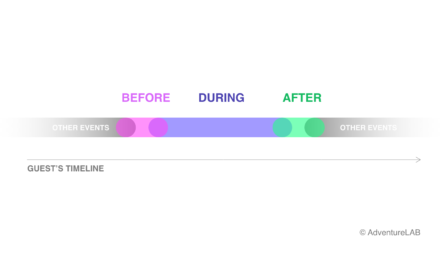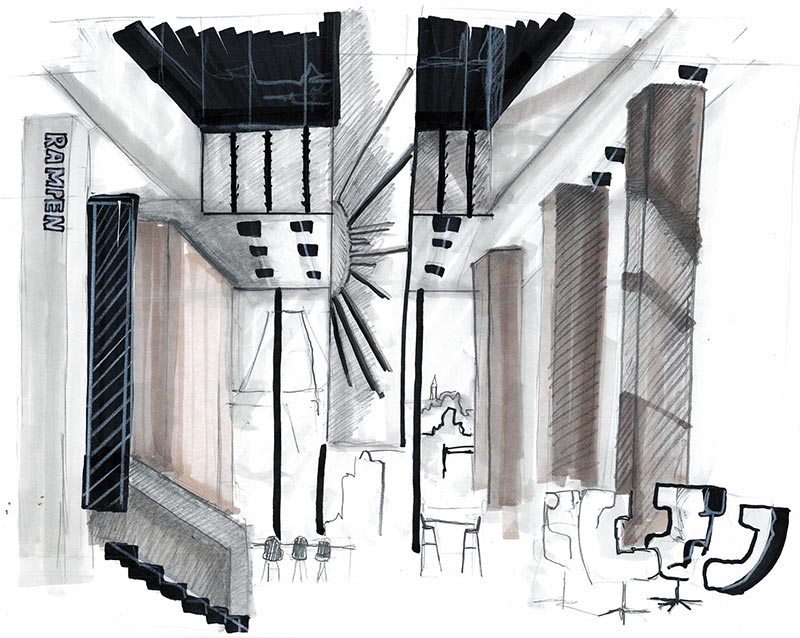The New Experience Business Trends That Might Change Your Brand
March 20, 2017Any marketer involved in branding in 2017 is almost certain to be involved in experience design or experience management in one way or the other. As with many disciplines, experience design itself is dynamic and in a continuous state of flux, where seasoned practitioners and newcomers alike will need to adapt to new technologies and the influence of trends as they pass from the first movers to a mainstream audience.
For the modern marketer, your experiential activities will need to be a continuous trial-and-error exercise, just as many of your other efforts. What works for a business similar to yours may not work for you. Conversely, businesses outside your industry may have figured out a solution that may be suitable for you too.
My advice to brands that want to be experience businesses is to maintain an open mind and a keen eye on others that are already focused on the visitor, guest, and customer experience.
Below are a number of technologies and ideas currently influencing experience design. It’s by no means, a definitive list, but rather a starting point that could very well influence your marketing efforts around experience.
Augmented Reality (AR)
AR adds another dimension to that which already exists, placing objects in your surroundings only viewable through the camera of your mobile device. Some observers believe AR will be more of a game-changer than Virtual Reality (VR).
Digital Detox
Currently, we are seeing a reaction to what many consider the over-digitalisation of our everyday lives. The apparent need for digital detox experiences has even been embraced by Google, which has taken some staff to a Camp Grounded offsite event as a reminder of a world outside of technology.
Hybrid Experiences
A strong trend in experience design is the merger of digital and physical realities to create new, hybrid experiences. These include in out-of-home entertainment, such as the hyper-reality VR games of The Void, and numerous outdoor and location-based AR experiences being developed.
Quests
Quests, or missions, are a way to give someone a task they can spend time on, while you retain their interest and presence. Pokémon GO is the obvious example, which, in its basic form, is the quest to go find Pokémons.
Unpacking
Apple is well aware of the importance of unpacking as part of the product. Consider also the spike in vinyl record sales in the U.K, which is less about listening to the music than having the physical cover with its artwork.
Simulations
Simulated experiences are not just digital, but also themed or branded. The gondola rides at the Venetian, for example, emulate the real, authentic experience. Marketers should not just dismiss these as uninteresting because they are not authentic. The memory of a gondola ride in Las Vegas or a proposal at Disneyland is no less real to those who experience them. Simulations succeed if they make us suspend our disbelief and allow us to immerse ourselves in a well-executed setting.
Virtual Reality (VR)
As everyone is still trying to define what VR marketing means to branding, we see an increasing number of good examples of VR as experiential marketing. Among them are Audi’s Enter Sandbox and Old Irish’s Virtual Journey To Ireland.
To keep yourself updated on experience industry trends, you may want to review these sources:
European Centre for the Experience and Transformation Economy
The European Centre for the Experience and Transformation Economy provides professional training in business transformation for value creation—and more.
International Association of Amusement Parks and Attractions (IAAPA)
IAAPA is the largest international trade association for permanently situated amusement facilities worldwide.
Pine & Gilmore
Joe Pine and Jim Gilmore, founders of Strategic Horizons LLP, have authored several significant books, including “The Experience Economy.”
The Experience Economist
Get some experience industry inspiration in your mailbox. Several sources who share knowledge also offer free newsletters. For starters, may I suggest The Experience Economist?
Themed Entertainment Association (TEA)
The TEA is an international association representing the world’s leading creators, developers, designers, and producers of compelling places and experiences. The TEA website member directory is a one-stop resource for cross-disciplinary competencies that can bring any experience to life.
CMO.com
Finally, CMO.com has an increasing number of articles on how experiences can prove valuable to your brand. A good starting point is “What CMOs Must Nail In 2017 To Succeed In The ‘Experience Business,” with CMO.com’s network of top marketers and analysts answering the question “What is the one thing CMOs must get right in 2017 to make that happen?”




